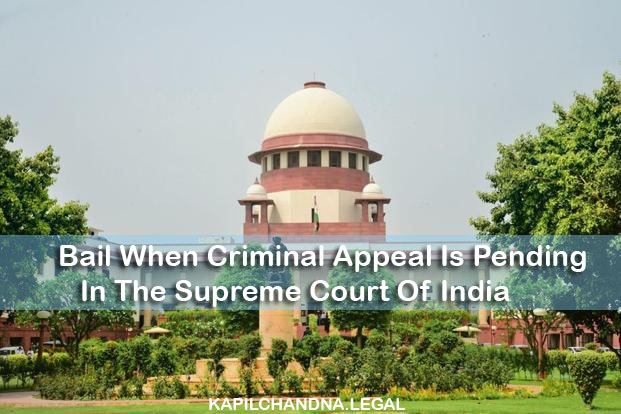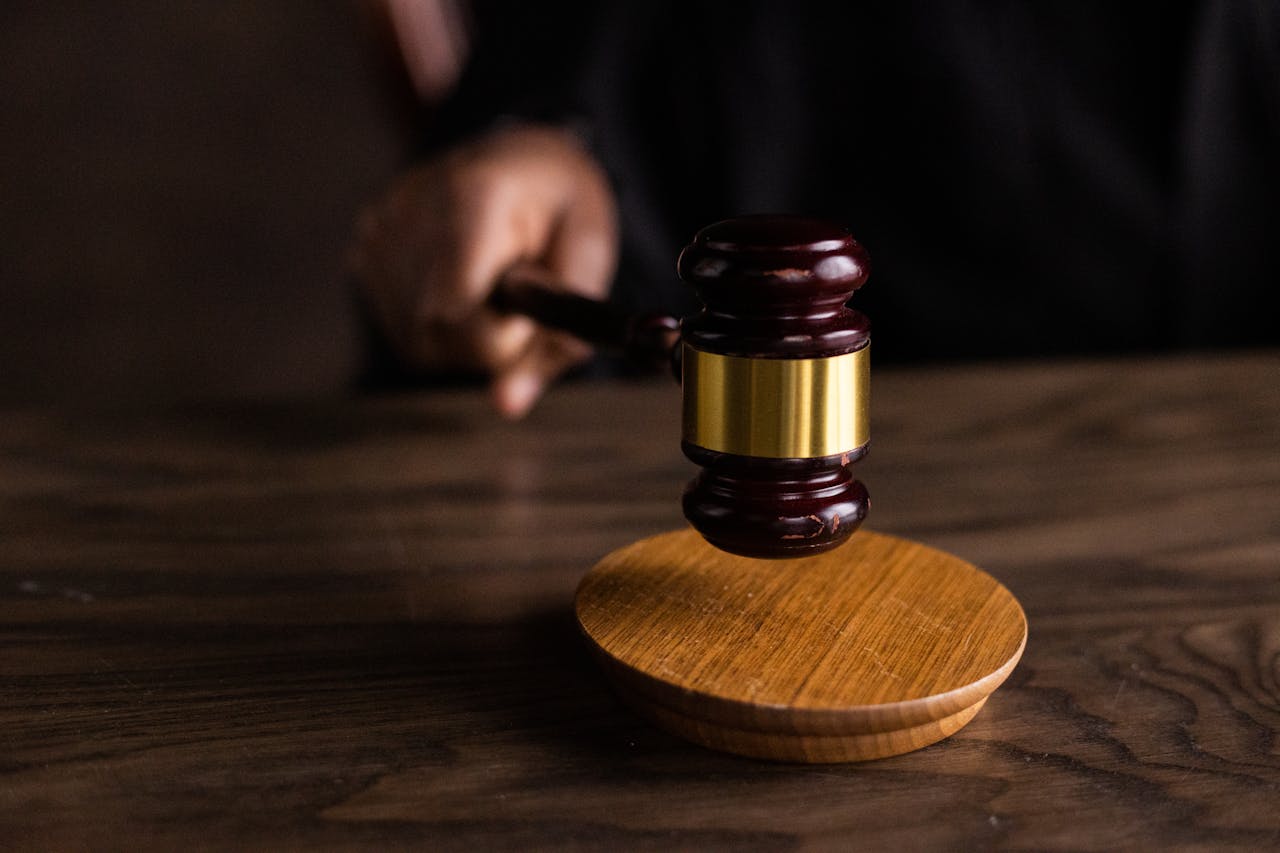Bail When Criminal Appeal Is Pending In The Supreme Court Of India
The Special Leave Petition is filed by accused u/a 136 of Constitution of India before Hon’ble Supreme Court of India, who has been convicted by High Court. Supreme Court is exercising appellate criminal as well as civil jurisdiction under Article 136 of Constitution of India. There are certain situations prescribed in Code Criminal Procedure, 1973 or any other special legistations, when SLP (crl.) or Criminal appeal is filed before Supreme Court. An appeal is a process by which a judgment/order of a subordinate Court is challenged before its superior court. A party to a case does not have any inherent right to challenge the judgment/order of subordinate Court before its Superior Court. Appeal or Special leave petition has to be filed in the specified manner in the specified Courts. After hearing counsel for accused, there are two possibilities that either the case is dismissed or notice was issued generally to State by Hon’ble Supreme Court. During pendency there is possibility that leave would be granted by Supreme Court or if its a short matter then Supreme Court will hear the matter and disposed the matter and grant the matter then there only. However, generally SLP filed against conviction arising out of heinous offence, if notices were issued by Supreme Court, then leave were granted by Supreme court by which SLP (crl.) would be converted into Criminal appeal.
Basic theory of criminal jurisprudence that an accused is found innocent till there happens to be finding of a court of competent jurisdiction, once a verdict of guilt comes out, the presumption of innocence got erased. As soon as, accused is found guilty, convict has been given statutory right to file an appeal or revision, as the case may be. And that happens to be reason behind that with regard to statutory appeal provision of bail till pendency of appeal after suspension of sentence has been provided, though subject to proper consideration by the appellate court, in case the sentence is found more than three years, otherwise, the lower court will itself allow in terms ofSections 389(3) of the CrPC even then subject toSection 389(1) CrPC.
On account of shortcoming of strength of the judges in comparison to filing, pendency of the appeal, backlog is found piled up due to which Court is not in a position to hear the appeal of an accused within a reasonable period of time, the Court should ordinarily, unless there are cogent grounds for acting otherwise, release the accused on bail in cases where special leave has been granted to the accused to appeal against his conviction and sentence. That accused were released on bail during pendency of appeal on the ground that it would indeed be a travesty of justice to keep a person in jail for a period of five or six years for an offence which is ultimately found not to have been committed by him. Can the Court ever compensate him for his incarceration which is found to be unjustified?
The Supreme Court has same powers as the High Court for granting bail to the accused pending his appeal. Where an appeal by a convicted person is pending before the court, the court may by reasons to be recorded by it in writing, suspend the sentence passed against the convict and if the convict is in confinement grant him bail.
Bail during pendency of appeal can’t be granted in routine and in mechanical manner and it has to be judged objectively. The requirement of recording reasons in writing clearly indicates that there has to be careful consideration of the relevant aspects and the order directing suspension of sentence and grant of bail should not be passed as a matter of routine. The mere fact that during the trial, they were granted bail and there was no allegation of misuse of liberty, is really not of much significance. The effect of bail granted during trial loses significance when on completion of trial, the accused persons have been found guilty.
The principle is well settled that in considering the prayer for bail during pendency of appeal in a case involving a serious offence like murder punishable under Section 302 IPC, the court should consider the relevant factors like the nature of the accusation made against the accused, the manner in which the crime is alleged to have been committed, the gravity of the offence, and the desirability of releasing the accused on bail after they have been convicted for committing the serious offence of murder.
It was stated by Supreme Court in one case held that an accused who had misutilized the liberty that was granted to accused earlier by committing another offence while on bail, was not entitled to the privilege of being released on bail . However, it was observed in another case by Supreme Court that if other co-accused have been granted bail then similar situated co-accused on the principle of parity are also entitled for similar relief. Supreme Court has granted bail to accused when substantial sentence has already been served by accused. In some cases, Supreme Court has granted bail during the pendency of criminal appeal to accused when there is no chance of hearing to take place in near further and substantial sentence has been served by accused.
Though no absolute and unconditional rule about when bail should be granted by the Court and when it should not. It all depends on the facts and circumstances of each case and it cannot be said there is any absolute rule that because a long period of imprisonment has expired bail must necessarily be granted.
1.Kashmira Singh vs. State of Punjab 1977(4) SCC 291
2.Kishori Lal v. Rupa, (2004) 7 SCC 638
3.Vijay Kumar v. Narendra, (2002) 9 SCC 364
4.Ramesh Kumar Singh v. Jhabbar Singh, (2003) 10 SCC 195
5.Fazal v. State of U.P., (2012) 5 SCC 752
6.Salim Javed v. State of Rajasthan, (2006) 9 SCC 602




